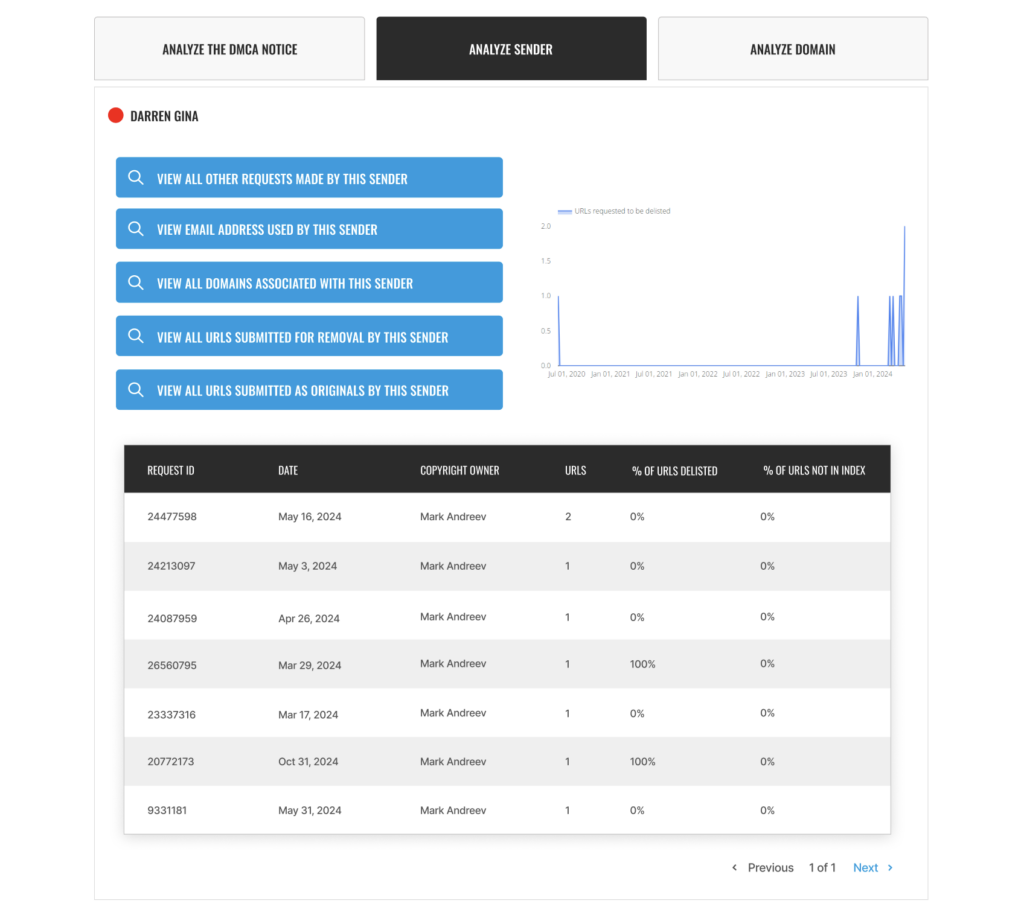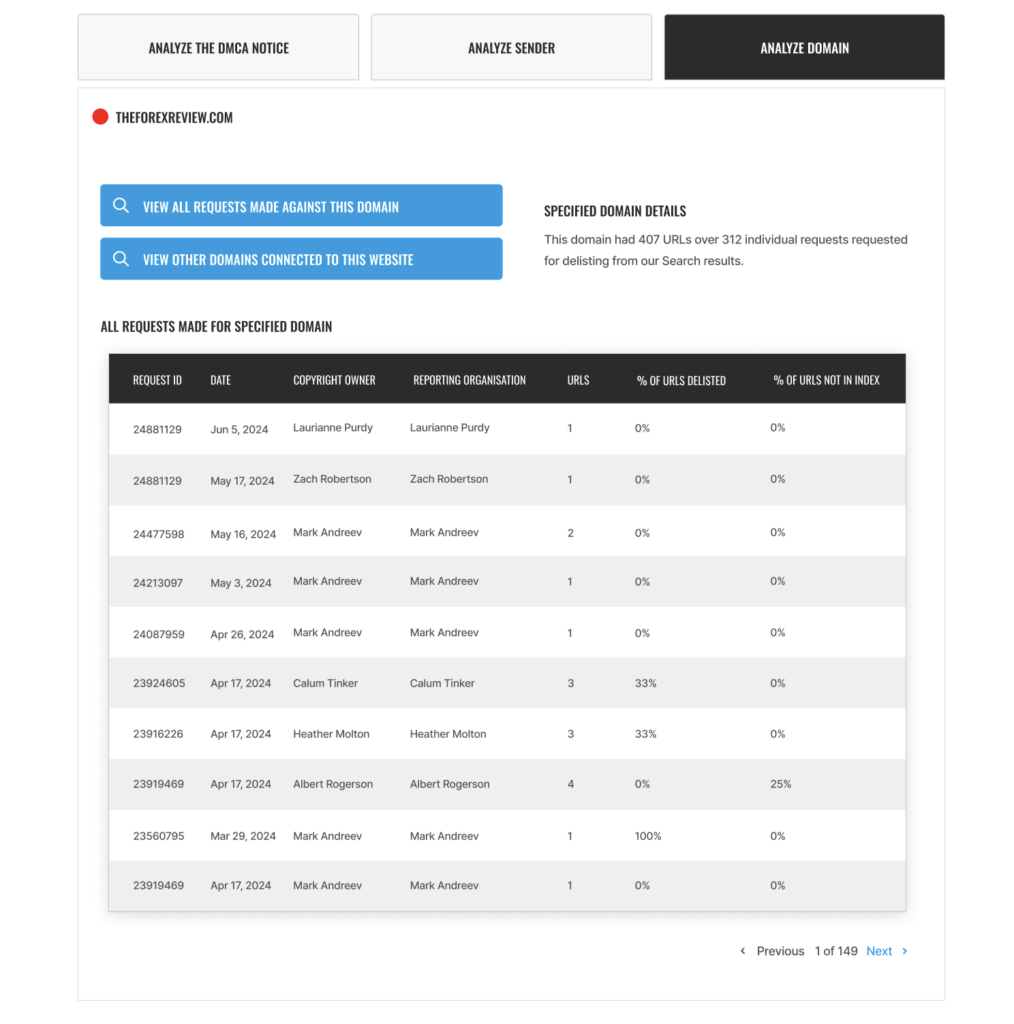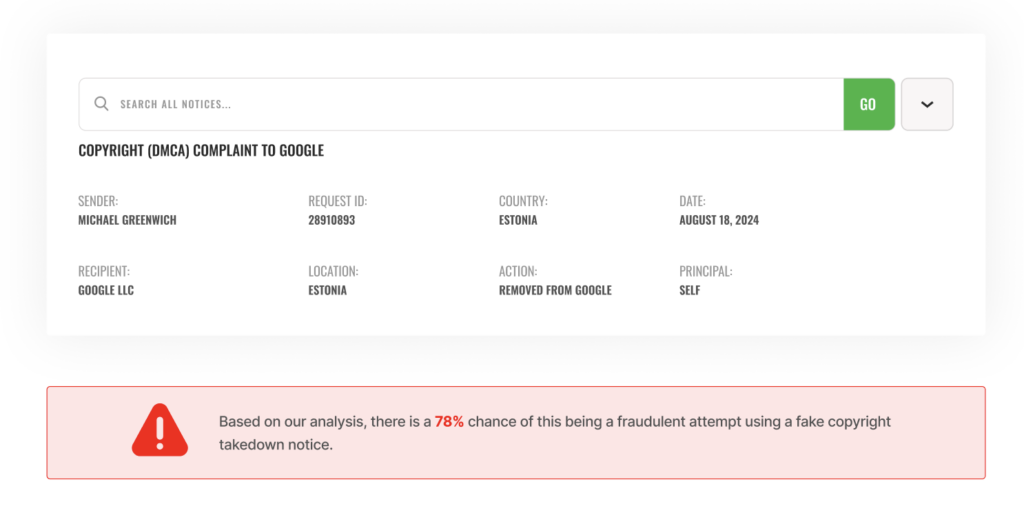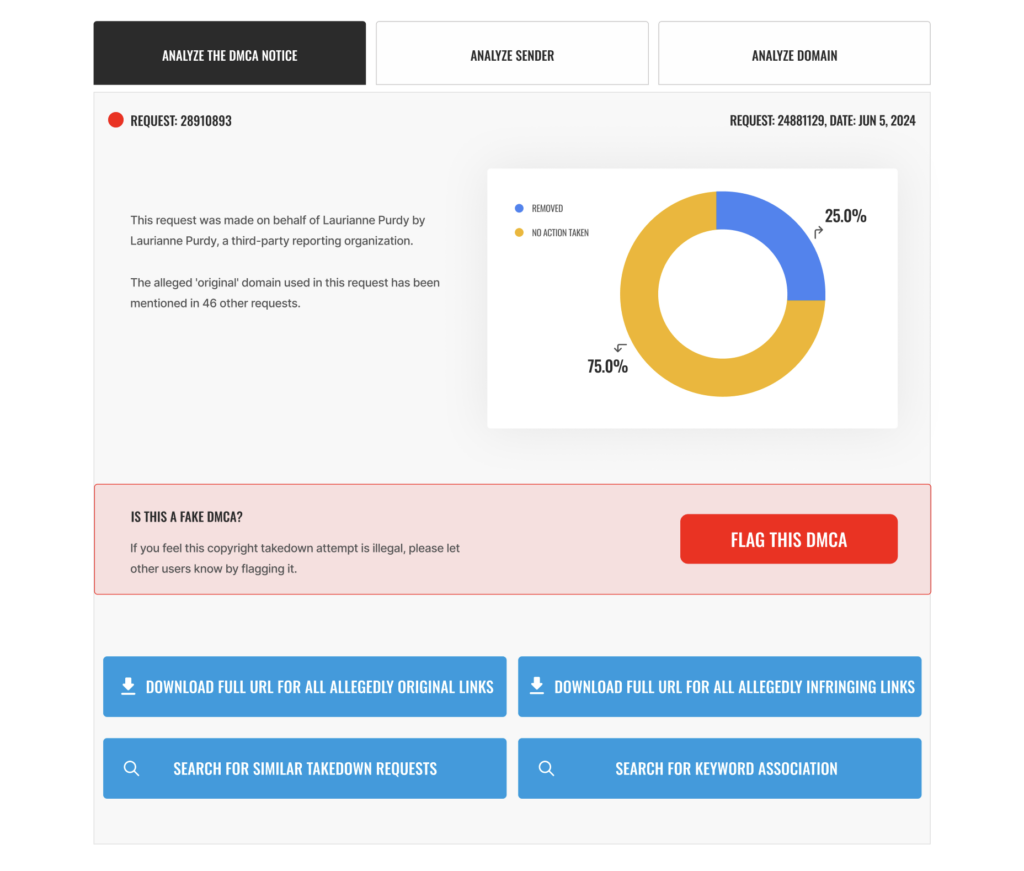What Happened?
AnyCach, a payment facilitator with a dubious reputation, has been at the center of several controversies involving its alleged role in supporting fraudulent activities. The company’s connections to shady operators and dubious financial schemes have been revealed multiple times, yet it continues to make efforts to suppress such damaging news and cover up its checkered past.
Recent reports indicate that AnyCach, previously associated with various Estonian scam facilitators, has gone through a series of operational changes, presumably in an attempt to distance itself from past scandals. According to FinTelegram, AnyCach’s operator Any.Money underwent changes that appear to be part of a larger effort to obfuscate the entity’s involvement in illegal activities. These changes are seen as attempts to rebrand and sideline its controversial history while maintaining operations under new guises.

Furthermore, AnyCach’s name has been linked to the German-Ukrainian Capital Letter Scam Group, where it allegedly acted as a payment processor, facilitating the flow of funds for fraudulent endeavors. Despite these concerning ties, the company has actively pursued measures to censor these allegations, limiting public exposure to its involvement in scams.

Analyzing the Fake Copyright Notice(s)
Our team collects and analyses fraudulent copyright takedown requests, legal complaints, and other efforts to remove critical information from the internet. Through our investigative reporting, we examine the prevalence and operation of an organized censorship industry, predominantly funded by criminal entities, oligarchs, and disreputable businesses or individuals. Our findings allow internet users to gain insight into these censorship schemes’ sources, methods, and underlying objectives.
List of Fake Copyright Notices for AnyCach
| Number of Fake DMCA Notice(s) | 1 |
| Lumen Database Notice(s) | https://lumendatabase.org/notices/36872438 |
| Sender(s) | Fabrice Niyongabo |
| Date(s) | Oct 25, 2023 |
| Fake Link(s) Used by Scammers | https://leaksmain.com/interesting-changes-estonian-scam-facilitator-any-money-changed-its-operators/ |
| Original Link(s) Targeted | https://fintelegram.com/tag/anycach/ |
Evidence and Screenshots

How do we investigate fake DMCA notices?
To accomplish this, we utilize the OSINT Tool provided by FakeDMCA.com and the Lumen API for Researchers, courtesy of the Lumen Database.
FakeDMCA.com is the work of an independent team of research students and cybersecurity professionals, developed under Project UnCensor. Their OSINT Tool, designed to uncover and analyze takedown notices, represents a significant step forward in combating these abusive practices. It has become a valuable resource, increasingly relied upon by journalists and law enforcement agencies across the United States.
Lumen, on the other hand, is an independent research initiative dedicated to studying takedown notices and other legal demands related to online content removal. The project, which operates under the Berkman Klein Center for Internet & Society at Harvard University, plays a crucial role in tracking and understanding the broader implications of such requests.
What was AnyCach trying to hide?
AnyCach is a payment facilitator that has been implicated in facilitating fraudulent schemes and scams, particularly in connection with dubious financial operations. Originally operating under the name Any.Money, the company has undergone changes in ownership and branding, which appears to be a calculated attempt to distance itself from previous controversies. The company has been linked to various scam networks and fraudulent activities, often involving cross-border money transfers, which have drawn significant scrutiny.
AnyCach has been trying to suppress a range of damaging news, allegations, and complaints about its role in enabling fraudulent financial activities. According to reports from FinTelegram, the following key points highlight the adverse information AnyCach is attempting to cover up:
- Links to Estonian Scam Facilitators: AnyCach has been reported to have strong connections with Estonian scam facilitators. The company’s operator, Any.Money, went through significant changes, seemingly to dissociate from its history of facilitating questionable financial activities. These changes have been interpreted as efforts to mask its involvement in scams and minimize accountability.
- Involvement in the German-Ukrainian Capital Letter Scam Group: AnyCach has been linked to the notorious German-Ukrainian Capital Letter Scam Group. It allegedly provided payment processing services for this scam group, enabling the flow of illicit funds. This group has been known for fraudulent schemes that target unsuspecting investors. Such facilitation by AnyCach has positioned the company as an integral part of these scams, contributing to the difficulties in tracing and retrieving lost funds.
- Rebranding Efforts to Avoid Scrutiny: AnyCach’s rebranding efforts—changing operators and potentially restructuring—appear to be a calculated move to evade regulatory scrutiny and to obscure its past operations. These actions suggest that the company is attempting to reinvent itself while leaving behind a tainted history without fully addressing the allegations against it.
- Suppression of Negative Reviews and Complaints: There are numerous complaints and adverse reviews regarding AnyCach’s business practices, mostly involving its association with scams and questionable payment processing. The company has allegedly engaged in tactics to suppress these complaints, including removing negative reviews and censoring critical articles that expose its connections to fraud.
In summary, AnyCach’s attempts to hide its shady past center around distancing itself from its involvement in scam networks, restructuring its operations to mask connections, and suppressing damaging information that reveals its facilitation of illicit financial activities. These efforts are intended to rebuild its image while evading accountability for the fraudulent schemes it has enabled.
Only AnyCach benefits from this crime.

Since the fake copyright takedown notices were designed to remove negative content for AnyCach from Google, we assume AnyCach or someone associated with AnyCach is behind this scam. It is often a fly-by-night Online Reputation agency working on behalf of AnyCach. In this case, AnyCach, at best, will be an “accomplice” or an “accessory” to the crime. The specific laws may vary depending on the jurisdiction. Still, the legal principle generally holds that if you actively participate in planning, encouraging, or facilitating a crime, you can be charged with it, even if you did not personally commit it.
How do we counteract this malpractice?
Once we ascertain the involvement of AnyCach (or actors working on behalf of AnyCach), we will inform AnyCach of our findings via Electronic Mail.
Our preliminary assessment suggests that AnyCach may have engaged a third-party reputation management agency or expert, which, either independently or under direct authorization from AnyCach, initiated efforts to remove adverse online content, including potentially fraudulent DMCA takedown requests. We will extend an opportunity to AnyCach to provide details regarding their communications with the agency or expert, as well as the identification of the individual(s) responsible for executing these false DMCA notices.
Failure to respond in a timely manner will necessitate a reassessment of our initial assumptions. In such an event, we will be compelled to take appropriate legal action to rectify the unlawful conduct and take the following steps –
- Inform Google about the fraud committed against them.
- Inform the victims of the fake DMCA about their websites.
- Inform relevant law enforcement agencies
- File counter-notices on Google to reinstate the ‘removed’ content
- Publish copies of the ‘removed’ content on our network of 50+ websites
By investigating the fake DMCA takedown attempts, we hope to shed light on the reputation management industry, revealing how AnyCach and companies like it may use spurious copyright claims and fake legal notices to remove and obscure articles linking them to allegations of fraud, tax avoidance, corruption, and drug trafficking…
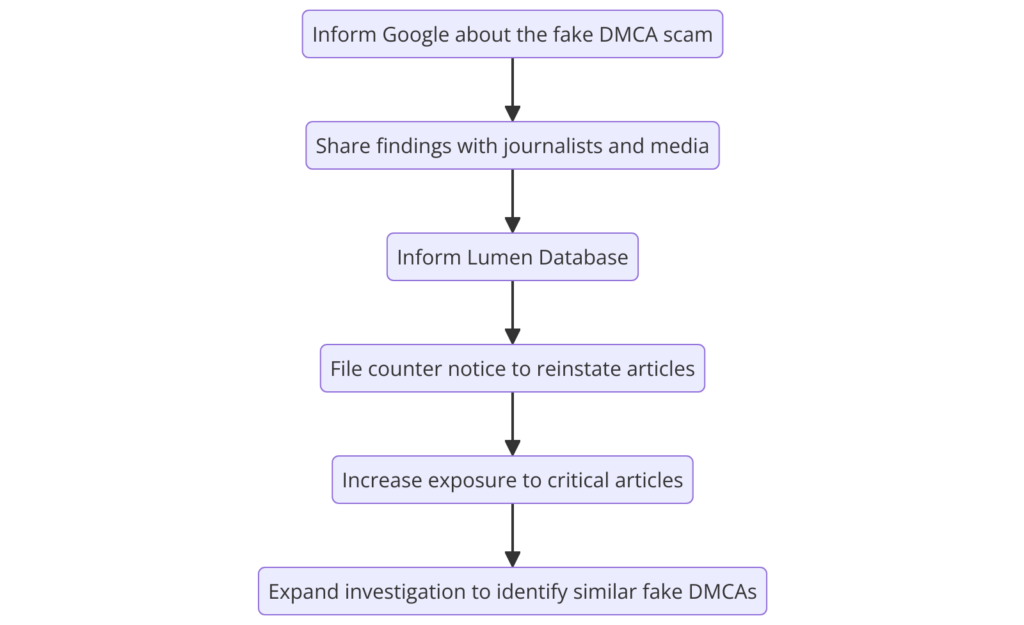
Since AnyCach made such efforts to hide something online, it seems fit to ensure that this article and our original review of AnyCach, including but not limited to user contributions, remain a permanent record for anyone interested in AnyCach.
A case perfect for the Streisand effect…
Potential Consequences for AnyCach
Under Florida Statute 831.01, the crime of Forgery is committed when a person falsifies, alters, counterfeits, or forges a document that carries “legal efficacy” with the intent to injure or defraud another person or entity.
Forging a document is considered a white-collar crime. It involves altering, changing, or modifying a document to deceive another person. It can also include passing along copies of documents that are known to be false. In many states in the US, falsifying a document is a crime punishable as a felony.
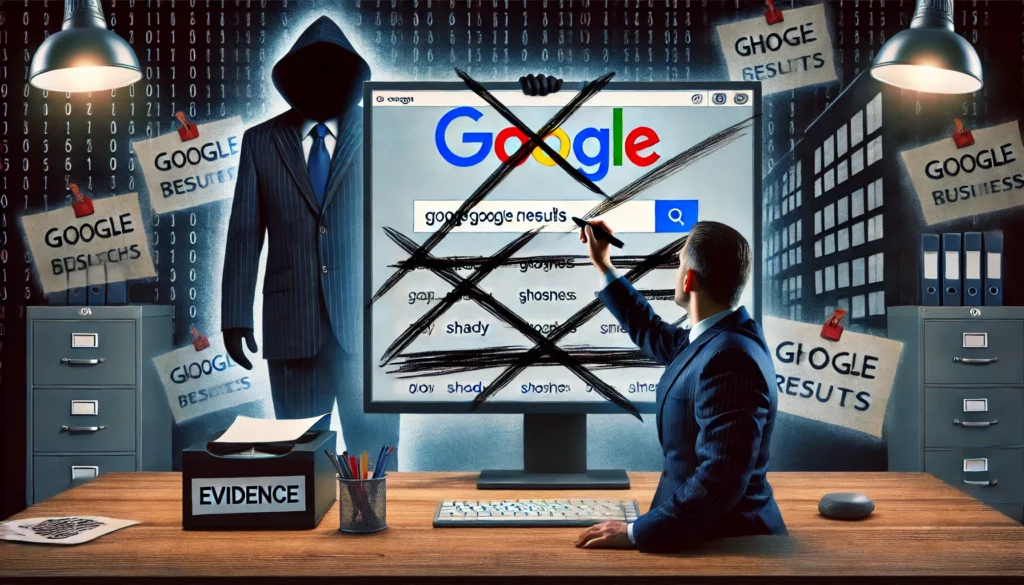
Additionally, under most laws, “fraud on the court” is where “a party has sentiently set in motion some unconscionable scheme calculated to interfere with the judicial system’s ability impartially to adjudicate a matter by improperly influencing the trier of fact or unfairly hampering the presentation of the opposing party’s claim or defense.” Cox v. Burke, 706 So. 2d 43, 46 (Fla. 5th DCA 1998) (quoting Aoude v. Mobil Oil Corp., 892 F.2d 1115, 1118 (1st Cir. 1989)).
Is AnyCach Committing a Cyber Crime?
Yes, it seems so. AnyCach used multiple approaches to remove unwanted material from review sites and Google’s search results. Thanks to protections allowing freedom of speech in the United States, there are very few legal ways to do this. AnyCach could not eliminate negative reviews or search results that linked to them without a valid claim of defamation, copyright infringement, or some other clear breach of the law.
Faced with these limitations, some companies like AnyCach have gone to extreme lengths to fraudulently claim copyright ownership over a negative review in the hopes of taking it down.
Fake DMCA notices have targeted articles highlighting the criminal activity of prominent people to hide their illegal behavior. These people, which include US, Russian, and Khazakstani politicians as well as members from elite circles including the mafia and those with massive financial power, are all connected – and alleged corruption ranging from child abuse to sexual harassment is exposed when exploring evidence found at these URLs. It appears there’s a disturbing level of influence being exerted here that needs further investigation before justice can be served. AnyCach is certainly keeping interesting company here….

The DMCA takedown process requires that copyright owners submit a takedown notice to an ISP identifying the allegedly infringing content and declaring, under penalty of perjury, that they have a good faith belief that the content is infringing. The ISP must then promptly remove or disable access to the content. The alleged infringer can then submit a counter-notice, and if the copyright owner does not take legal action within 10 to 14 days, the ISP can restore the content.
Since these platforms are predominantly based in the U.S., the complaints are typically made under the Digital Millennium Copyright Act (DMCA), which requires online service providers and platforms to react immediately to reports or violations. Big Tech companies rarely have systems in place to assess the merit of each report. Instead, all bad actors need to do is clone a story, backdate it, and then demand the real thing be taken down.
Reputation Agency’s Modus Operandi
The fake DMCA notices we found always use the “back-dated article” technique. With this technique, the wrongful notice sender (or copier) creates a copy of a “true original” article and back-dates it, creating a “fake original” article (a copy of the true original) that, at first glance, appears to have been published before the true original.

Then, based on the claim that this backdated article is the “original,” the scammers send a DMCA to the relevant online service providers (e.g. Google), alleging that the ‘true’ original is the copied or “infringing” article and that the copied article is the “original,” requesting the takedown of the ‘true’ original article. After sending the DMCA request, the person who sent the wrong notice takes down the fake original URL, likely to make sure that the article doesn’t stay online in any way. If the takedown notice is successful, the disappearance from the internet of information is most likely to be legitimate speech.
How did AnyCach purport this DMCA Fraud?
As an integral part of this scheme, the ‘reputation management’ company hired by AnyCach creates a website that purports to be a ‘news’ site. This site is designed to look legitimate at a glance, but any degree of scrutiny reveals it as the charade it is.
The company copies the ‘negative’ content and posts it “on the fake ‘news’ site, attributing it to a separate author,” then gives it “a false publication date on the ‘news’ website that predated the orig





